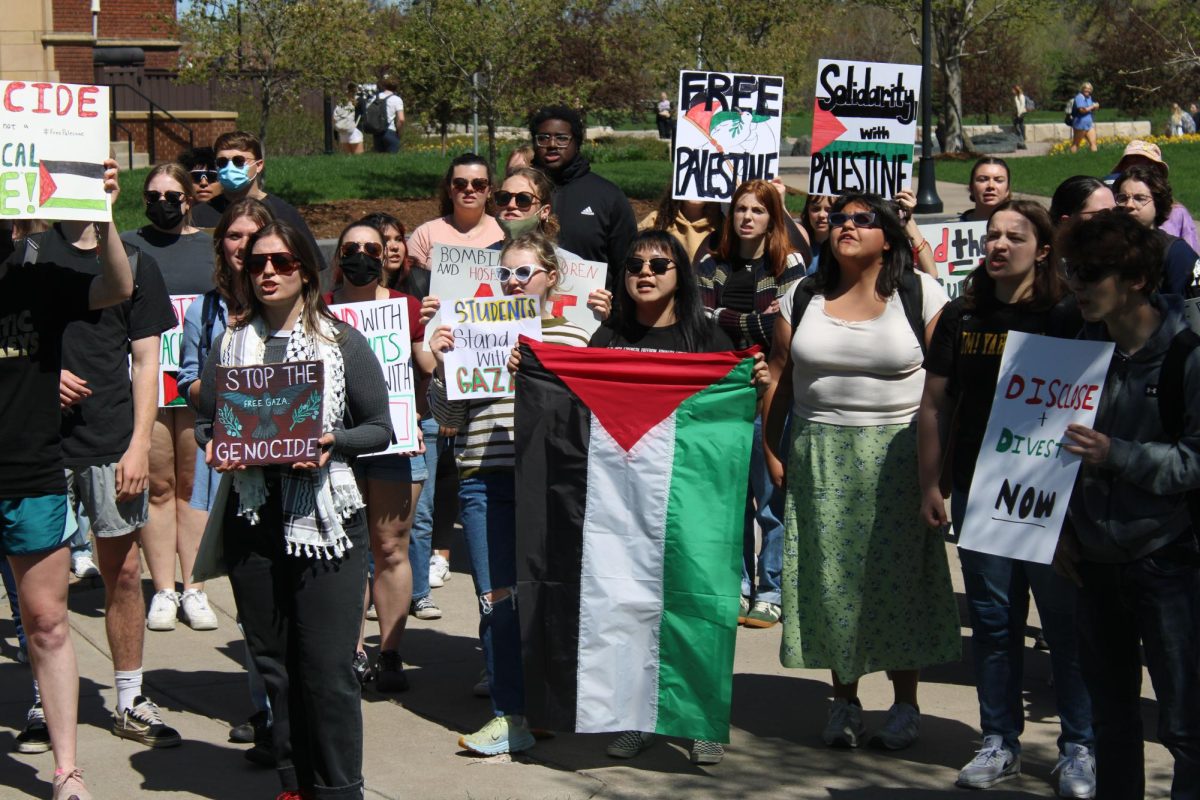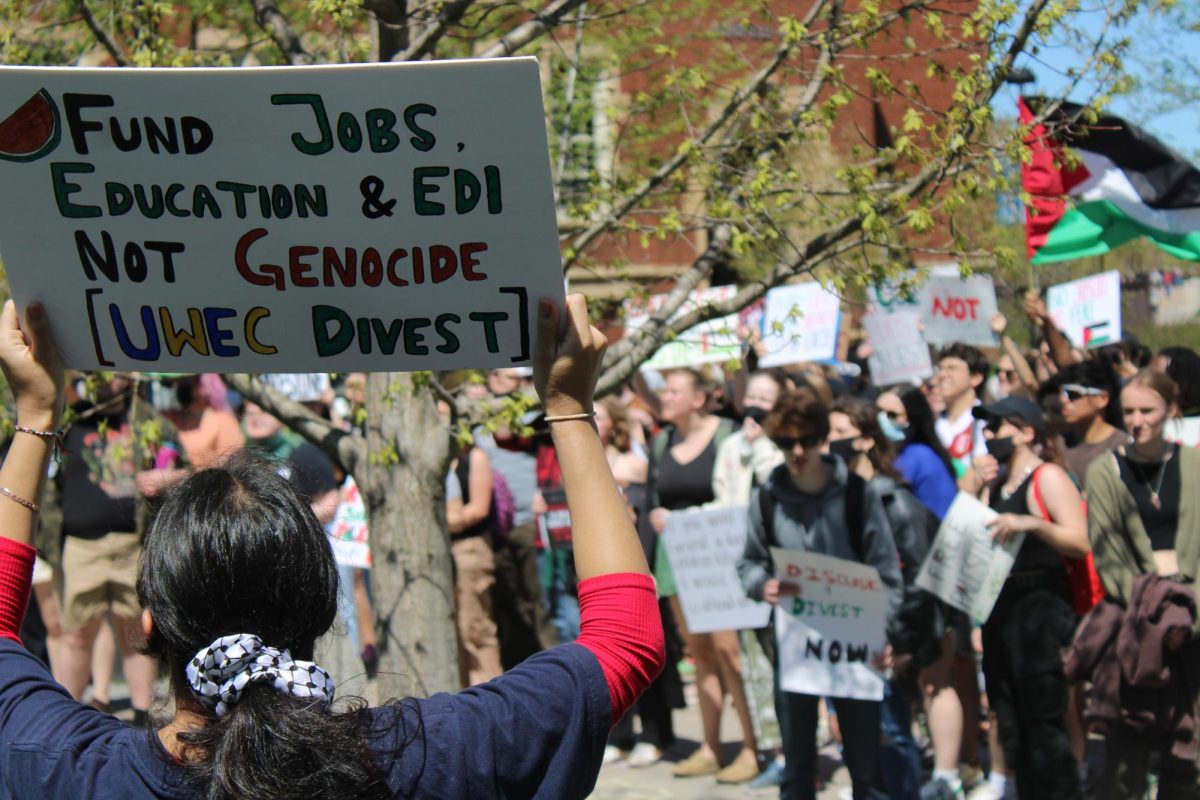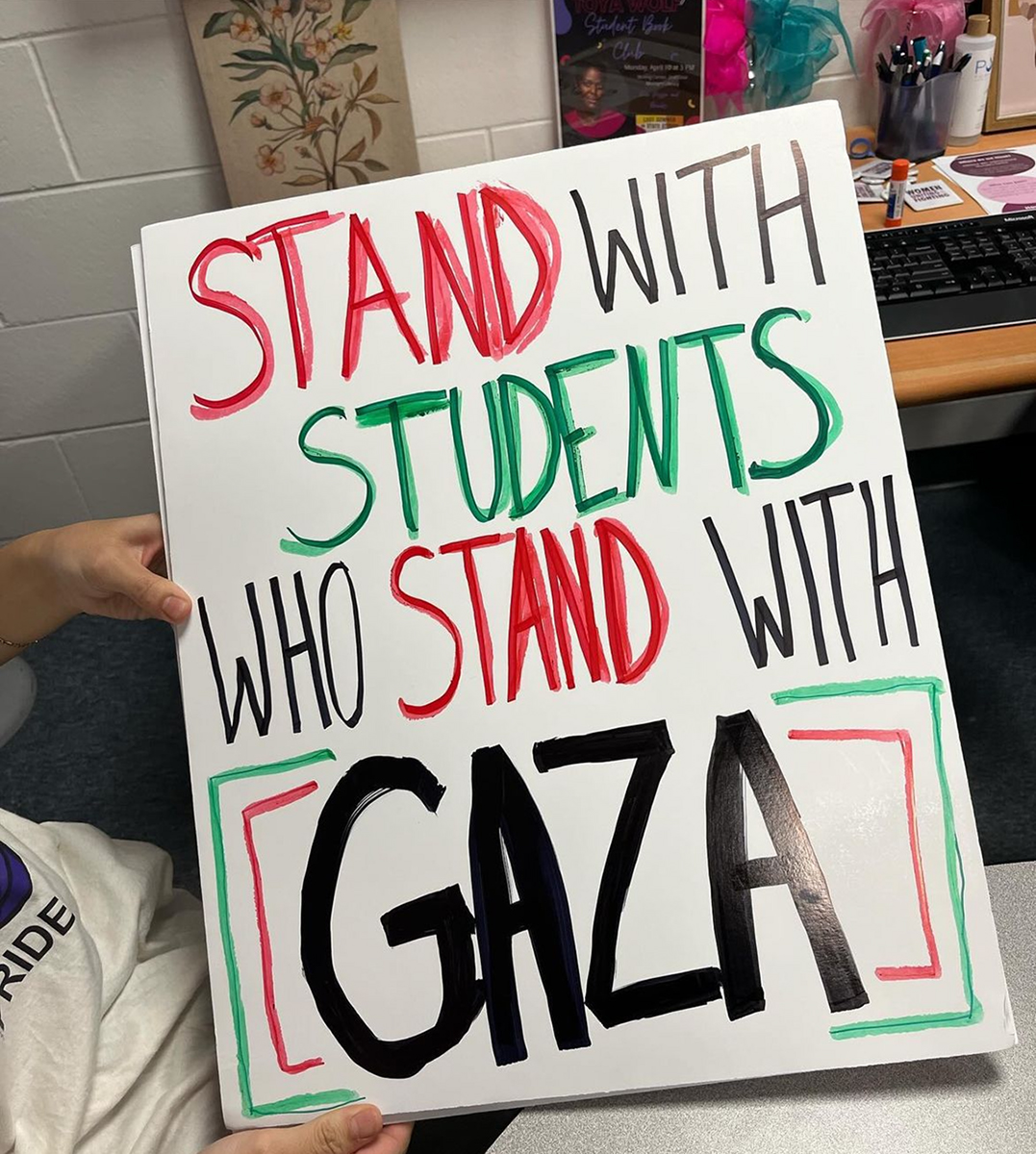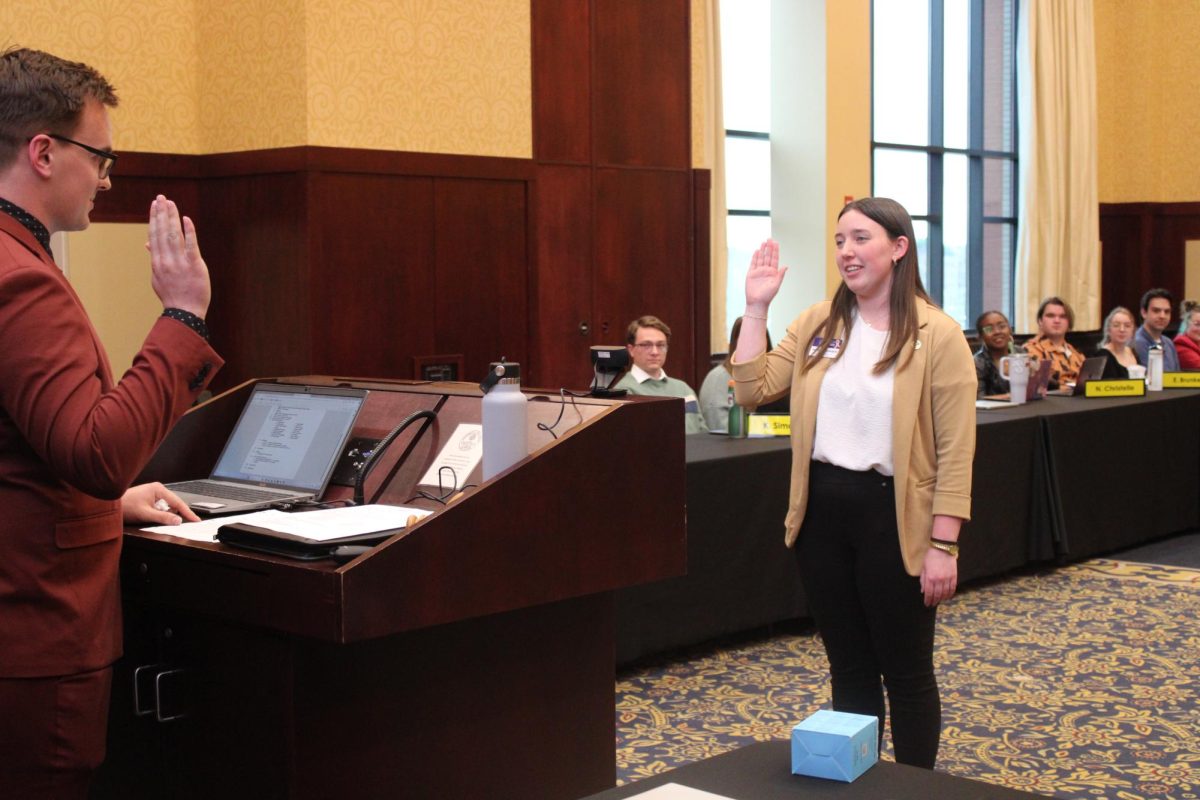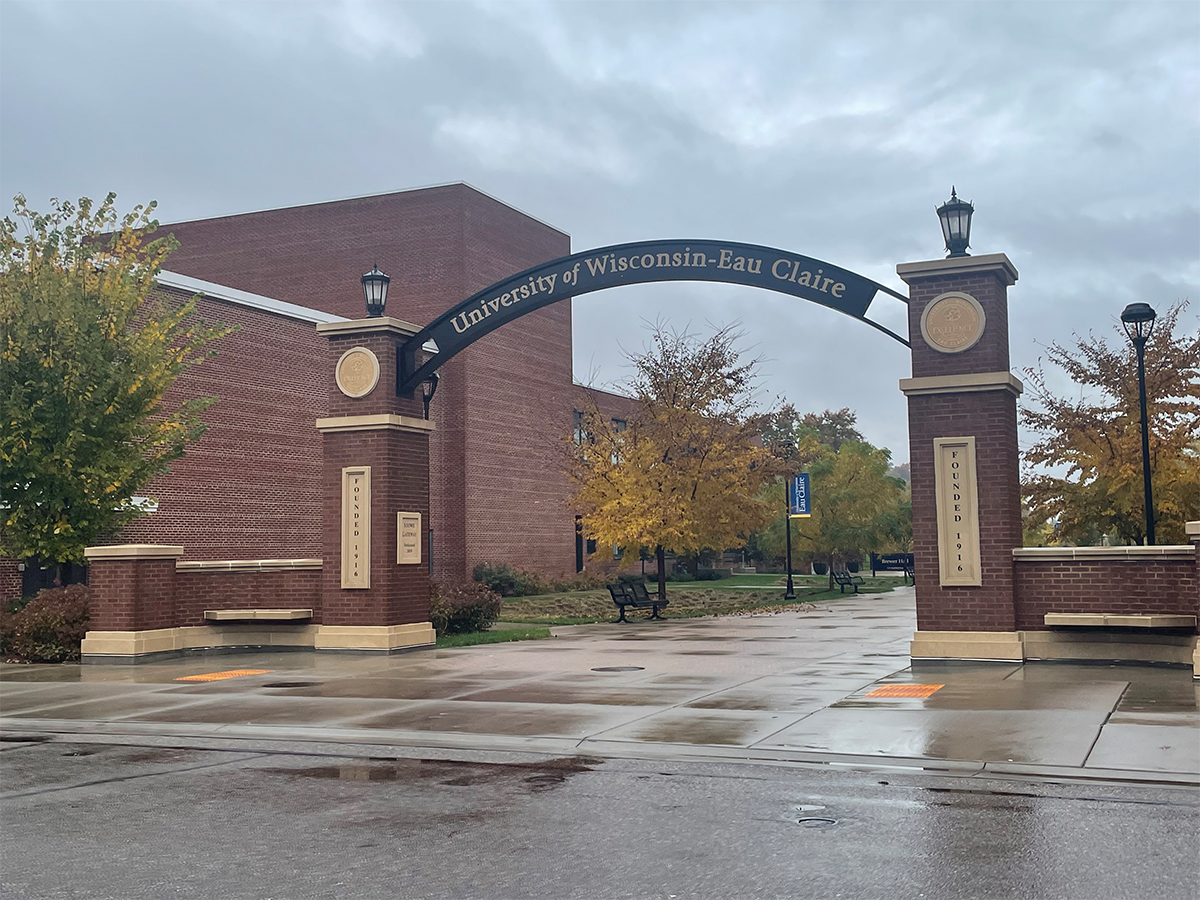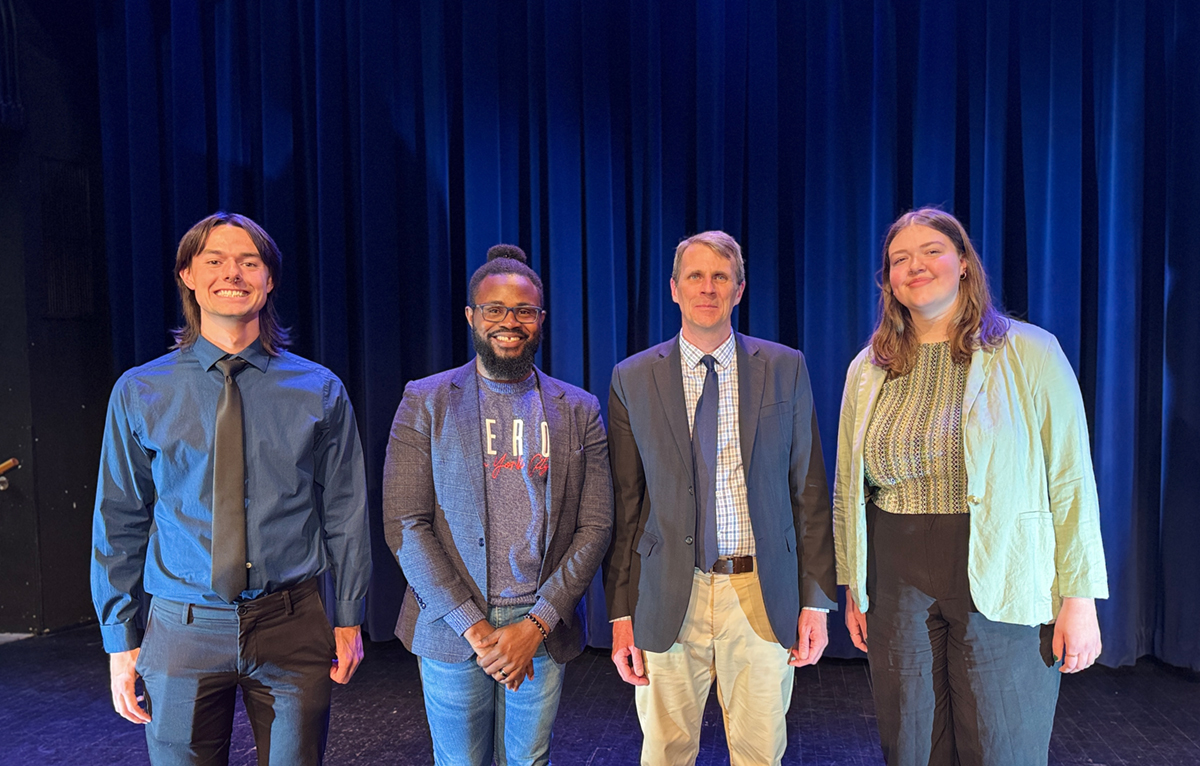 Emmalee Rathmann
Emmalee RathmannA free culturally enlightening meal, a new perspective on the Muslim and Jewish traditions and a free dredle were the spoils of the joint Hanukkah/Ramadan celebration held Wednesday night in Davies.
More than 100 people, including community members and students attended the celebration, marking the end of the Muslim celebration of Ramadan and the coming of the Jewish celebration of Hanukkah.
“I wanted to open myself to more cultures so I can have a better understanding of the world around me,” senior Chris Arndt said.
During the dinner, which featured traditional Middle Eastern food from Jewish and Muslim cultures, presentations were given by representatives of both cultures. Arndt said he gained a better understanding of both cultures, during the dinner.
He already knew about Hanukkah, he said, but he gained a better understanding of the significance of some of the ceremonial traditions. The tradition of lighting candles on a menorah honors the fire from oil during the first Hanukkah celebration. The supply of oil was not supposed to last for long, but it lasted for eight days, according to Jewish beliefs.
Arndt knew nothing of Ramadan. He said this was his introduction to the holiday.
After people got food, which included potato pancakes, eggplant dishes, pita bread and other Middle Eastern specialties, speakers told the audience about the traditions of Hanukkah and Ramadan.
Hanukkah began when Jewish people were forced into paganism by a king more than 2,000 years ago. The celebration represents the struggle for the right for individuals to choose their own religious path.
“Fighting for religious freedom is really important,” said Helaine Minkus, organizer of the event and professor of anthropology.
Minkus presented the Jewish portion of the presentation, but she said she didn’t know much about Ramadan. For the Ramadan portion of the presentation, she invited Mahmoud Taman, a physician from Chippewa Falls.
Taman said Ramadan is a more solemn celebration focusing on developing a more personal connection with God and denying oneself from the pleasures of sex and food. The month of Ramadan, he said, includes a lot of prayer and fasting.
“The combination (of the two celebrations) was interesting in part because of the conflict in the past 100 years,” Minkus said. Despite the conflict between Muslims and Jews, she said the two cultures have lived together peacefully for a long time.
The goal of the celebration, Minkus said, was to unite the two cultures together and also to show the cultures to others.
The event could only be held this year because the two holidays only overlap about every 30 years.
This was the first time the celebration was held at the university, and it was a good community and university event, Minkus said.
“This is what the university should be doing.”

